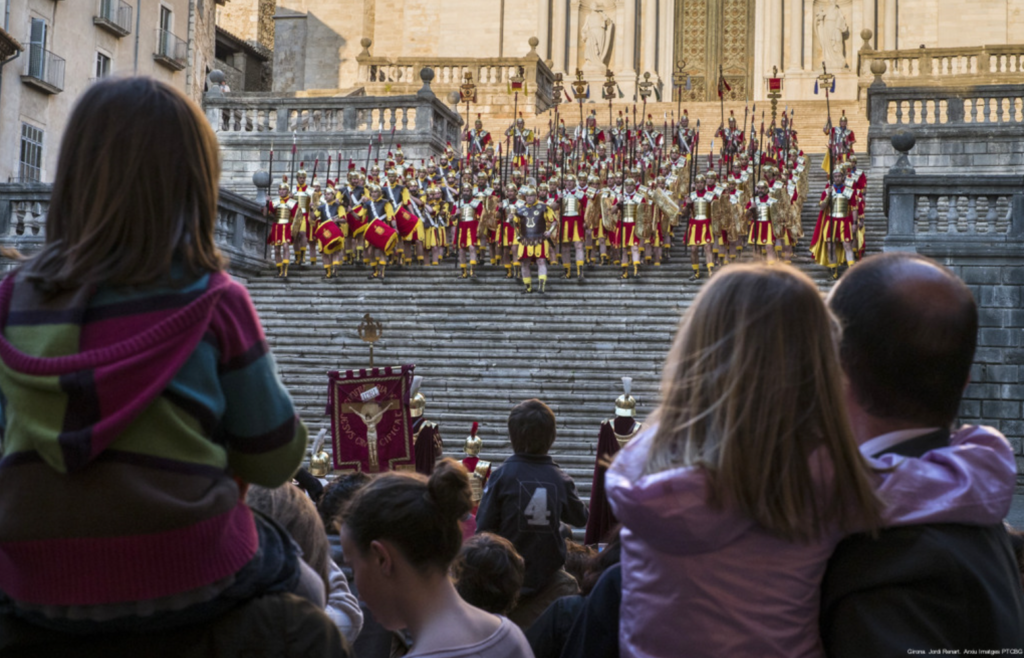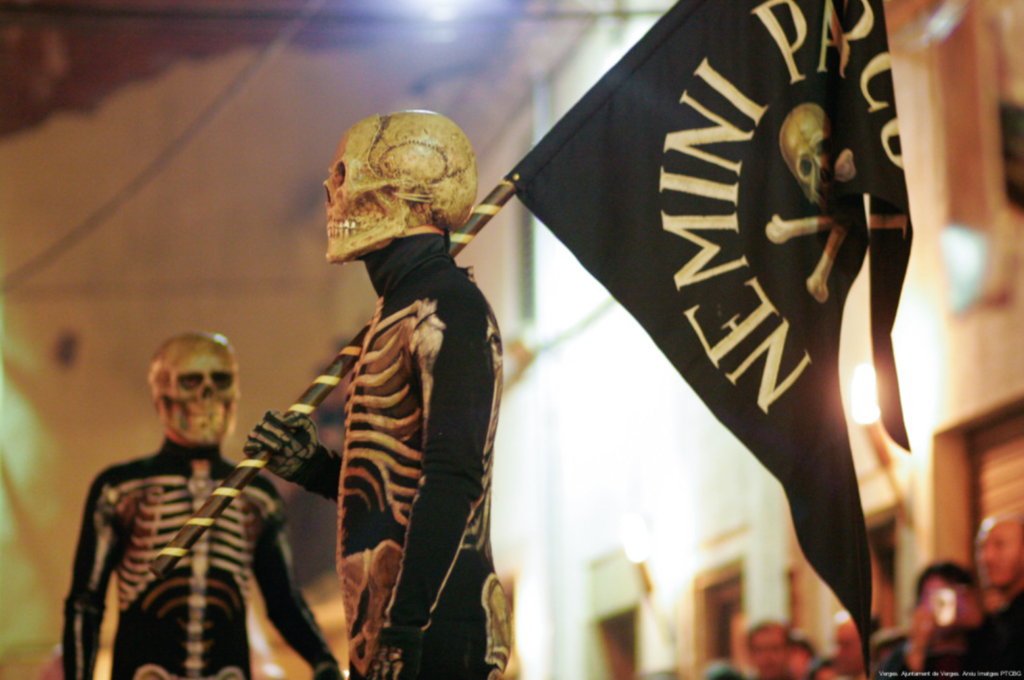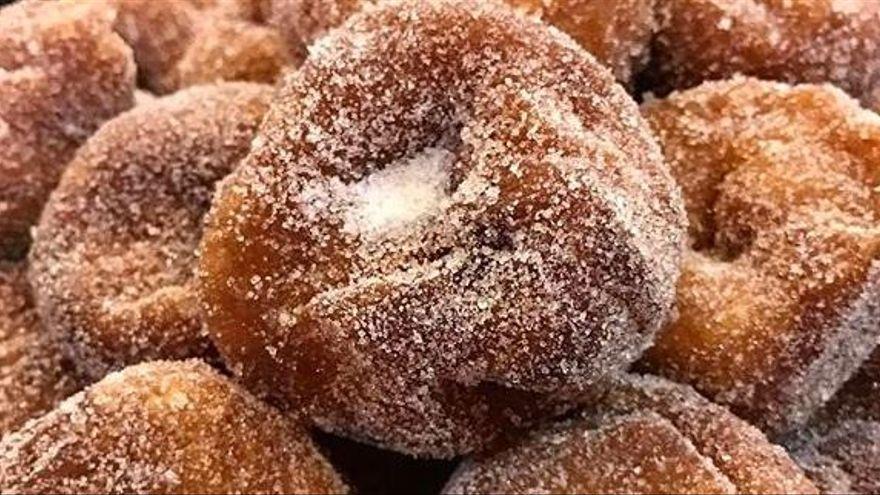Inscriu-te al Camping Talent i vine a conèixer les ofertes dels càmpings de Girona: Inscriu-te ara!.
Inscriu-te ara al Camping Talent! Vine a conèixer les ofertes dels càmpings de Girona
Inscriu-te al Camping Talent i vine a conèixer les ofertes dels càmpings de Girona: Inscriu-te ara!.
Inscriu-te ara al Camping Talent! Vine a conèixer les ofertes dels càmpings de Girona
Easter is synonymous with getaways and good weather, a combination that on the Costa Brava and the Girona Pyrenees is equivalent to cultural visits, walks along the coastal paths, and good gastronomy. It is also the starting signal for the openings of the new season of the Girona campsites!
If you have an agenda in hand and are starting to plan all your vacations, it is essential that you save a spring getaway to these lands…
During these dates, Holy Week is a celebration that fuses religious tradition with the cultural wealth of the area. This period, which commemorates the passion, death and resurrection of Jesus Christ, is experienced in a special way in the lands of Girona, where deep-rooted traditions and exquisite gastronomy intertwine to create a unique experience.
Here are some of the experiences that you cannot miss during your Easter holidays.

Holy Week in Girona is not only a religious event, but also a time of community celebration. Palm Sunday marks the beginning of the festivities, with the streets decorated with palms and olive branches, while the faithful carry blessed bouquets in a procession that welcomes Holy Week.
On Holy Thursday, the churches are filled for the Last Supper, followed by a visit to the monuments, where believers honor the commandment of charity and humility. Good Friday, a day of mourning, is observed with moving solemnity, culminating in multiple processions that run through the streets of cities and towns in the territory.

One of the most notable elements of Holy Week in Girona are the processions, true manifestations of faith and devotion. The inhabitants of the regions are immersed in a spiritual atmosphere while the streets are filled with colorful steps, virgins and Christs, accompanied by music bands that perform processional marches.
The ‘Manaies’ of Girona is the most magical moment of Good Friday, when the ‘Vestes’ (penitents) and ‘Manaies’ (Roman soldiers) parade through the streets of the city, beginning the procession with the descent of the stairs of the Girona Cathedral at slow speed and the spears stinging.
The Verges Dance of Death, declared a Heritage Festival of National Interest, is the only one that has survived over time and has been preserved since medieval times. On Holy Thursday the procession is held to commemorate the Passion of Christ and along the way various performances take place, such as the Dance of Death where ten skeletons dance to the sound of a drum under the dim lighting of torches.
The Via Crucis of Sant Hilari de Sacalm has taken place for more than three centuries. On Good Friday the town celebrates its Via Crucis Vivent, which has received the award from the Creu de Sant Jordi and has been declared a Festive Heritage Element of National Interest. A procession that hosts a moving artistic representation setting the streets of the town, accompanied by mysteries and lit candles, with dozens of actors interpreting biblical scenes about the Passion and death of Jesus.
The Procession of ‘Dolors’ in Besalú is a unique event that is celebrated on the Friday before Palm Sunday, where tradition, mysticism and spirituality of this medieval town go hand in hand. The most anticipated moment of the procession is the arrival at the Plaza Mayor, when the apostles sing the salve and, in the midst of absolute silence, the Virgin returns to the church.
The Procession of the Holy Mysteries in Campdevànol is celebrated on Good Friday. The peculiarity of this procession is that the steps are interpreted by the locals themselves but in a static and silent way, during a two-hour journey. The choir in the procession provides a soundtrack to the procession itinerary.

And to finish with a good taste in your mouth, we cannot forget the most typical Easter dishes that you have to try no matter what.
In the past, the church prohibited eating meat between Carnival and Lent, which is why cod became a star dish at this time of year to this days.
Another of the typical products of Lent are ‘bunyols’, a type of spongy and sweet donuts, with a hole in the middle or not (it depends on the area where they are made) and are consumed for dessert.
The Easter Mona is a cake with a chocolate figure on top that godparents give to their godchildren on Easter Monday. Traditionally, Monas were not chocolate, but were simply a cake with hard-boiled eggs on top.
Finally, the ‘Tortell de Rams’ is not missing in any pastry shop during Holy Week. It is consumed on Palm Sunday and has many variations, depending on the pastry, but always with a hole in the middle and made of marzipan.